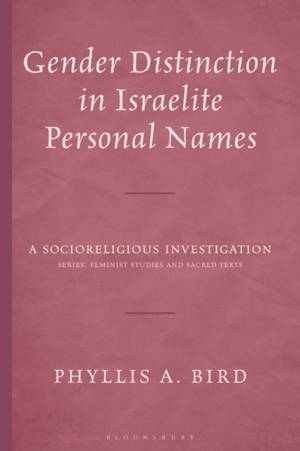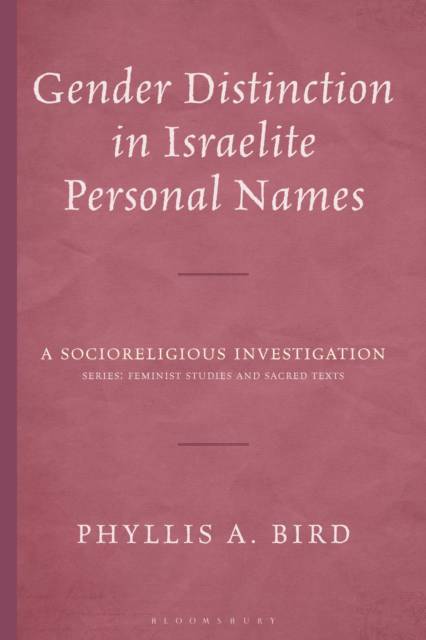
Bedankt voor het vertrouwen het afgelopen jaar! Om jou te bedanken bieden we GRATIS verzending (in België) aan op alles gedurende de hele maand januari.
- Afhalen na 1 uur in een winkel met voorraad
- In januari gratis thuislevering in België
- Ruim aanbod met 7 miljoen producten
Bedankt voor het vertrouwen het afgelopen jaar! Om jou te bedanken bieden we GRATIS verzending (in België) aan op alles gedurende de hele maand januari.
- Afhalen na 1 uur in een winkel met voorraad
- In januari gratis thuislevering in België
- Ruim aanbod met 7 miljoen producten
Zoeken
€ 203,95
+ 407 punten
Omschrijving
This book challenges the traditional view that no significant distinction exists between male and female names in the Hebrew Bible by comparing all female names from the Hebrew Bible, Hebrew inscriptions, and Elephantine documents with comparable male names.
It shows clear distinctions, unnoted or dismissed by previous studies, and analyzes more subtle differences as reflecting social and religious customs and values over time. Particular attention is given to the work of Rainer Albertz in Family and Household Religion in Ancient Israel and the Levant (co-authored with Rüdiger Schmitt), where he analyzes the personal names found in epigraphic sources as a complement to the biblical names and a primary source for reconstruction of "household religion" in ancient Israel. Two appendices treat (a) the distribution of female names in the Hebrew Bible, with attention to the implications of distinct literary sources for the biblical female and male names, and (b) detailed analysis of all theophoric female names, with comparison to male names from the same root.Specificaties
Betrokkenen
- Auteur(s):
- Uitgeverij:
Inhoud
- Aantal bladzijden:
- 168
- Taal:
- Engels
- Reeks:
Eigenschappen
- Productcode (EAN):
- 9798765159361
- Verschijningsdatum:
- 27/11/2025
- Uitvoering:
- Hardcover
- Formaat:
- Genaaid
- Afmetingen:
- 152 mm x 229 mm
- Gewicht:
- 394 g

Alleen bij Standaard Boekhandel
+ 407 punten op je klantenkaart van Standaard Boekhandel
Beoordelingen
We publiceren alleen reviews die voldoen aan de voorwaarden voor reviews. Bekijk onze voorwaarden voor reviews.









